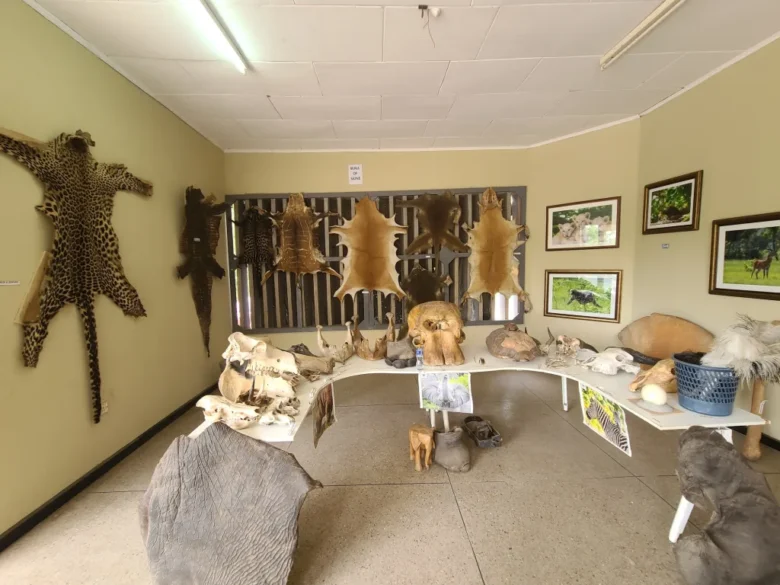Ghana is a country with deep historical roots and a rich cultural tapestry woven from over 100 ethnic groups, centuries of resistance, colonial encounters, and post-independence pride. For travelers seeking to go beyond beaches and safaris, Ghana’s museums offer powerful stories, artifacts, and interactive insights into the nation’s past and present.
Whether you’re in Accra, Kumasi, or exploring the regions, these five cultural museums are must-visits to better understand Ghana’s identity, struggles, creativity, and achievements.
1. National Museum of Ghana – Accra
Location: Barnes Road, Central Accra
Established: 1957 (year of Ghana’s independence)
Focus: Ethnography, archaeology, and Ghana’s diverse cultures
The National Museum is Ghana’s premier museum and a natural starting point for understanding the country’s story. After a major renovation in 2021, it now boasts upgraded exhibits and expanded visitor spaces.
What to See:
- Traditional clothing, stools, musical instruments, and royal regalia
- Artifacts from ancient Ghanaian civilizations
- Displays of colonial resistance and independence movements
- Sculptures, masks, and ceremonial objects from across Africa
Why Visit:
- Provides a national-level overview of Ghana’s cultural diversity
- Centrally located and easy to access from most parts of Accra
- Often hosts rotating art and history exhibitions
Tip: Pair with a visit to the nearby W.E.B. DuBois Centre or Kwame Nkrumah Mausoleum for a full-day cultural itinerary.
2. Manhyia Palace Museum – Kumasi
Location: Ashanti New Town, Kumasi
Established: 1995 (at the site of the old royal palace)
Focus: Ashanti Kingdom history and royal heritage
Located at the former residence of the Asantehene (King of the Ashanti), this museum offers unparalleled insight into one of Africa’s most powerful and enduring traditional kingdoms.
What to See:
- Personal belongings of past Ashanti kings and queens
- Kente cloths, war relics, and chieftaincy regalia
- Audio tours (available in English and Twi) narrating Ashanti history
- Historical photos and colonial-era documents
Why Visit:
- Offers a close-up view of how traditional leadership coexists with modern governance
- Provides context for visiting the nearby Akwasidae Festival
- Excellent for understanding Akan traditions and power structures
Visitor Tip: Dress modestly and respectfully; this is still an active royal palace complex. Guided tours are available daily.
3. Cape Coast Castle Museum – Cape Coast
Location: Cape Coast, Central Region
Established: In the old governor’s quarters of the slave castle
Focus: Transatlantic slave trade and colonial history
Inside one of the most historically important slave castles in West Africa, this museum captures the inhumanity of the slave trade and Ghana’s central role in it.
What to See:
- Exhibits on the history of the slave trade, abolition, and resistance
- Archaeological items recovered from the castle and surrounding areas
- Memorials from diaspora communities worldwide
- Documentaries and guided tours exploring the castle’s role in the slave trade
Why Visit:
- Deeply emotional and educational experience
- A place of pilgrimage for members of the African diaspora
- Museum contextualizes the castle experience with global and local narratives
Traveler’s Note: It’s recommended to visit with a guide. Prepare for a solemn and reflective experience.
4. Museum of Science and Technology – Accra
Location: Near the Ministry of Education, Accra
Established: 1965
Focus: Ghanaian innovation, indigenous science, and applied technology
Though less famous than historical museums, this institution showcases the intersection of traditional knowledge and modern science. It’s undergoing revitalization and becoming a hub for local inventors and students.
What to See:
- Displays on Ghana’s natural resources and early industrial efforts
- Traditional healing tools and local technologies
- Interactive STEM exhibits for youth
- Rotating exhibitions on climate change, renewable energy, and innovation
Why Visit:
- Ideal for families and science enthusiasts
- Highlights Ghana’s role in African innovation and self-reliance
- Offers a refreshing perspective beyond colonial history
Note: Check Ghana Museums and Monuments Board for current exhibit schedules.
5. Volta Regional Museum – Ho
Location: Ho, Volta Region
Established: 1973
Focus: Ewe culture and German colonial history
Located in a former German colonial building, this museum is dedicated to preserving the culture and history of the Volta Region, home to the Ewe people.
What to See:
- Cultural artifacts from the Ewe, including drums, stools, and woven cloth
- German colonial relics and architecture
- Historical narratives about the region’s incorporation into modern Ghana
- Exhibitions on local crafts and music
Why Visit:
- Offers depth on Ghana’s eastern ethnic groups often overlooked in national discourse
- Great starting point before exploring the Volta Region’s waterfalls, mountains, and festivals
- Quiet and uncrowded—ideal for contemplative exploration
Bonus Mentions
- Ussher Fort Museum (Accra): Focuses on slavery and African diaspora history, housed in another former slave-holding fort.
- Nkrumah Mausoleum (Accra): Not technically a museum, but a monument and archival site honoring Ghana’s first president with his writings, speeches, and personal effects.
Visiting Tips
- Check opening hours: Most museums are open Monday to Saturday, 9 AM–4 PM, but some close for public holidays.
- Guided tours enhance the experience: Especially at Cape Coast and Manhyia.
- Entry fees are modest, usually ranging from GHS 10–50 for foreigners.
- Photography rules vary: Some museums allow it freely, others restrict it or charge a small fee.
- Buy local souvenirs: Museum gift shops often feature handcrafted art, books, and cultural items.
Final Thoughts
Museums in Ghana aren’t just repositories of objects—they’re living classrooms that connect you to the soul of the country. Whether you’re learning about the grandeur of the Ashanti empire, confronting the horrors of the slave trade, or exploring the contributions of Ghanaian scientists and artists, each museum offers a vital piece of the national story. Be sure to include at least a few of these stops on your Ghana travel itinerary to gain a deeper, more grounded perspective.




